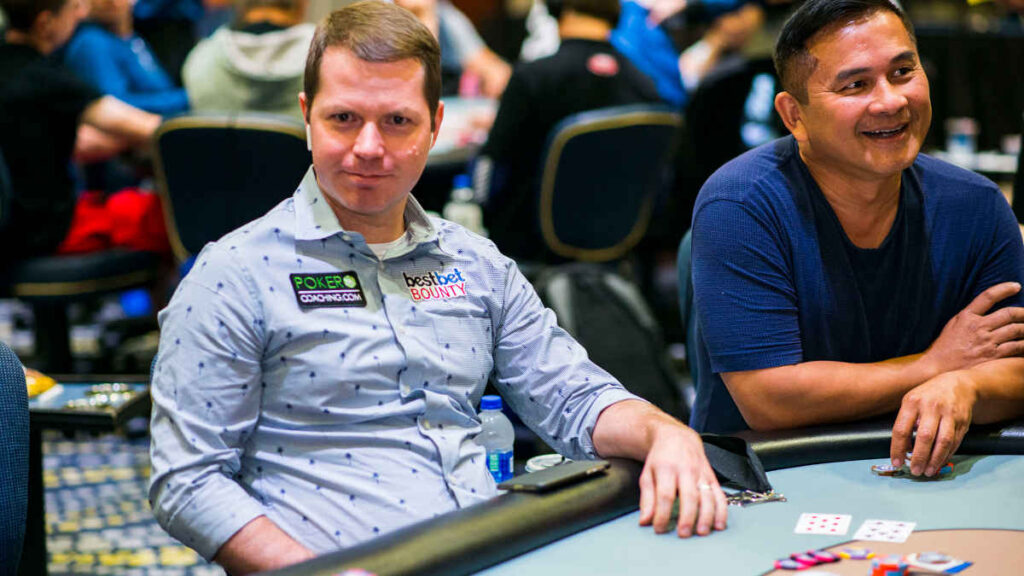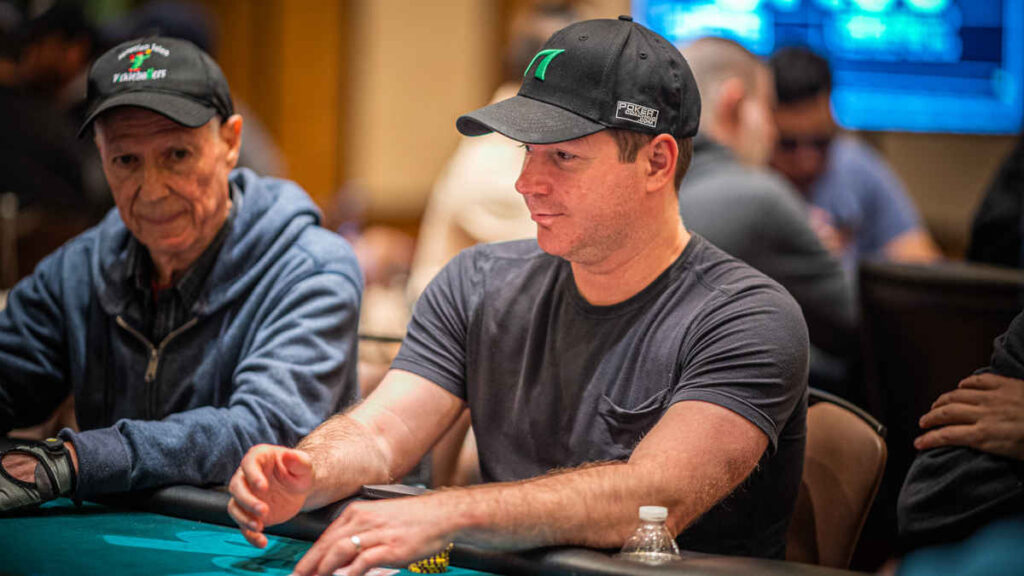Images courtesy of World Poker Tour
As the title suggests, in this lesson, we’ll discuss what you can do when the deck isn’t favoring you and you find yourself in a situation where you’re card dead and facing calling stations.
The lesson was inspired by questions asked by one of my students, who complained that he often finds himself going card dead in poker tournaments, asking what to do in small stakes games where people are calling stations.
You can’t get any bluffs through, and when you see a lot of flops and miss, you get blinded down. So, what can be done to improve the situation?
First of all, sometimes (quite often), you’ll go card dead for a period, whether you don’t get dealt any solid poker hands, or you don’t connect with the flops, and, most of the time, you’ll lose in these scenarios.
I’d say that I never go above the starting stack in some 30% – 50% of the tournaments that I play. It happens in cash games, too, where nothing goes your way, and you book a losing session.
All that being said, there are still certain things you can do to adjust to the situation and give yourself the best shot at winning. These are some of the main points to keep in mind.
Are Your Opponents Really Calling Stations?
It’s quite common to label players as calling stations, but, to make correct adjustments, you need to figure out if they really are that, and, if so, is there a point at which they stop?
In most small stakes games, players don’t want to put all of their chips at risk, especially early in a poker tournament or if it’s all the money they brought for a cash game or if a board runs badly for their perceived range.
So, even if cards aren’t cooperating, you can consider triple-barreling in certain spots, especially in situations where you have blockers to the nuts and the board runs out badly for your opponent. You can also go for some river check-raises in spots where they decide to go for thin value, such as top-pair type hands on flush boards.
You’ll realize that most players you’re facing aren’t the calling stations to the extreme, and will fold a lot in sticky spots.
In a similar fashion, you can implement some preflop 3-bet squeezes, when there is a raise and a bunch of callers. This will often result in no callers or just one caller that will then fold to your flop c-bet over 60% of the time.
However, for this strategy to be effective, you need to make your raises large enough. If you’re making small squeezes, your opponents aren’t calling stations – you’re giving them great pot odds to call, and they’re doing the right thing.
Is Getting Short-Stacked Really That Bad?

It goes without saying that you’d rather not be short-stacked, but if you know how to navigate the short stack well, this is not that bad of a situation. Your opponents may have to play 100bb strategy against each other, while you, sitting with 25bb and playing correctly, will be able to find a decent edge.
Let’s look at an extreme example. Say you have just one big blind and everybody else has 100. Someone makes a raise, you call, all others call, and then the action continues.
By the river, most players fold, and you take your hand against just one opponent, the best of the group, while getting 8:1 on your money. Even with a completely random hand, this isn’t bad at all.
In a more common scenario, when you are 12 to 30bb deep, you’ll have a lot of great situations where you can shove over raises and force folds from your opponents. This is especially true for players who raise a little too wide before the flop – you can crush them with your preflop jams, and there isn’t much they can do about it.
Fact Is, You’ll Bust Most Poker Tournaments
The simple truth that you need to accept and be happy about is that you’ll bust most poker tournaments that you play. I’d say I lose about 30% of tournaments I enter without every playing any significant hands. It part of the game.
You’ll also have some really bad runs throughout your career, where these losing tournaments come one after another.
The only thing you can do is study away from the table a lot to develop the ability to better recognize the spots where you’re simply going to lose.
Some players get in their heads that, if they played as if they knew their opponents’ cards in every spot (which nobody does), they could somehow magically not go broke in setup spots.
That’s not how things work. There are certain spots in which you’ll simply going to get your chips in the middle and lose, and, if you don’t, you’re probably not playing correctly.
For example, you have AK, someone shoves, you call and lose a flip, and you’re out. There is nothing to do in these spots in tournaments.
Instead of losing your mind about it, accept that you’ve signed up for a high-variance game that comes with its ups and downs. All you can do is try and make the best possible decision in any given situation and let the chips fall where they may!


